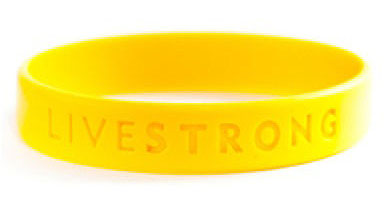UPDATED, Sept. 10, 11:50 a.m., to add Jenny Mead as a second author of the case.
When seven-time Tour de France winner Lance Armstrong appeared on the Oprah Winfrey Network and confessed to doping in January, it spelled the end of his competitive cycling career. But did it necessarily mean the end for his cancer-fighting foundation as well?
Students at the University of Virginia’s Darden School of Business will examine the LIVESTRONG Foundation in a new business case released by Darden Business Publishing.
“LIVESTRONG: Cycling Around Lance Armstrong” focuses on the LIVESTRONG Foundation, which Armstrong created after his own bout with cancer.
Through the case Erika James, senior associate dean for executive education and professor of business administration at Darden, and Jenny Mead, senior researcher, offer a glimpse into the concerns and questions faced by the leaders of the LIVESTRONG Foundation and how they should approach communicating with their primary stakeholders – cancer patients – after their founder’s loss of the public’s trust.
“This case can teach us a lot about getting out in front of communication,” said James, an expert in managing and leading through crisis. “The LIVESTRONG organization did nothing wrong, but they could be perceived as guilty by association and that needs to be managed just as if they were in fact the guilty party.”
James also noted that this case presents a lesson about the risks of organizations associating with high-profile people. Companies, such as Nike, that use famous athletes or celebrities to endorse products face this same risk.
After years of speculation and investigations, Armstrong finally admitted to using performance-enhancing drugs during the January interview with Oprah Winfrey. He had been stripped of his seven medals late last year for using performance-enhancing drugs.
“People are human, and by extension fallible,” James said. “Tying an organization’s brand to a well-known figure is a risk that must be managed.”
James, co-author of the book “Leading Under Pressure: From Surviving to Thriving, Before, During and After a Crisis,” met with a few of the LIVESTRONG Foundation’s leaders. Like many, these leaders felt disappointment.
“There was a personal friendship between them and Lance,” James said. “That friendship felt undermined after Lance’s admissions of impropriety.”
James also observed that LIVESTRONG always “lived” its calling as a cancer-support organization, and avoided living in the spotlight of Armstrong. She feels that their culture of staying dedicated to the cause could bode well for them.
“Since the controversy they have been working hard to double-down on their communication efforts around the mission – to serve the needs of people with cancer,” James said. “The leaders I spoke with were clearly nervous about the possibility of fallout from Lance’s controversy, but focused on moving forward.”
Media Contact
Article Information
August 30, 2013
/content/new-darden-case-explores-health-nonprofit-livestrong-after-creator-admits-doping

